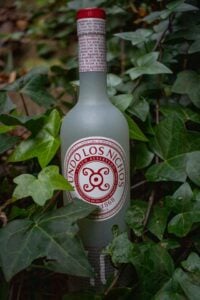7 Spanish Proverbs And What They Teach Us About Spanish-Speaking Cultures
Table of Contents
Phrases like “A bad workman always blames his tools” and “All that glitters is not gold” have two things in common. First, they have been consistently used across several English-speaking generations. And second, not many of us know where they come from.
Now that you’ve finally decided to study Spanish, what about doing things differently this time? Every time you hear a curious Spanish saying, ask a local about their origin! I’m sure you’ll be surprised at how much you can learn about the culture of a country from these idiomatic expressions.
Below, you will find 7 Spanish proverbs with fascinating origin stories to get you started!
1. Donde fueres, haz lo que vieres – Spain
“Wherever you go, do what you see”.
This Spanish saying is used to highlight the importance of adapting to the customs and lifestyle of a new environment. Whether this new place is a country, a city, or even a family home, integrating yourself into it is not just a sign of respect towards your hosts; it’s also the only way in which you can be truly happy.
Like most Spanish proverbs, this expression comes with an interesting story. According to our Spanish teacher Juan Carlos, it was said for the first time during the IV century by Ambrosio de Milán, one of the fathers of the Roman Catholic Church.
At this time, the Aryan theology started to challenge the divinity of Christ, arguing that the Son was distinct from the Father and therefore subordinate to Him.
Milán used an older version of this phrase, “Cuando estés en Roma, haz lo que hacen en Roma” (When in Rome, do as the Romans do) to remind his followers that they should follow the ideas of the Roman Church and not those of Arian theologists.

With time, the phrase Donde fueres, haz lo que vieres lost its religious connotation and became a sort of warning for travelers and migrants who hold so tight to their own customs that they fail to experience the new culture in all its richness.
2. Tlalticpac Toquichtin Tiez – Mexico
“The Earth shall be as good as men are”
Though this is a list of Spanish proverbs, this náhuatl expression actually has its origins in pre-hispanic Mexico. And unlike most sayings, it does have an author: Nezahualcóyotl, an undeniable symbol of aboriginal wisdom and monarch of the ancient Mexican city/state of Texcoco, was as good as a poet as he was beloved as a political leader.
According to our Mexican tutor Mónica, Nezahualcóyotl coined this phrase to warn his followers that one cannot merely take from the land or from a fellow human being without giving anything back. After all, the world we live in will be as beautiful and just as we make it.
Since ancient times, this phrase has inspired Mexican people not only to take care of animal and plant species but also to be kind to each other.
3. Estar en la palmera – Argentina
“To be under the palm tree”
In Buenos Aires, saying that you are under a palm tree means that you are going through a rough time, especially in relation to your finances.
It all started in a clandestine gambling house which, according to popular belief, had a tall palm tree in the backyard. Apparently, those who lost all their money used to sit under the tree to cry, curse their bad luck, and think what the heck they were going to tell their wives.
The expression “en la palmera” has since become one of the most popular Spanish sayings in Argentina and other countries. So famous, in fact, that the great singer Ada Falcón named one of her most famous songs (a tango about girls who only date rich men) after it.
Other common Argentinean Spanish sayings with the same meaning are “estar en la lona” (to be against the ropes) and “no tener donde caerse muerto” (not even have a spot where one can drop dead).
4. El huevo de Colón – Spain
“A Columbus egg“
Have you ever tried to do something that looked difficult or even impossible but turned out to be quite easy?
Then you’ve come across a Columbus egg.
According to history books, Christopher Columbus was having dinner with the Spanish nobility one evening when he had an idea. He took out an egg from his pocket and challenged everyone around the table to try to make it stand.
After every person in the room had tried and failed to do the challenge, Colombus took a spoon, hit the base of the egg softly so that the shell would crack just a little, and made it stand with an air of expertise to the astonishment of his noble guests. Then he sat down and said that not everything that seems difficult actually was. Since then, the phrase “el huevo de Colón” is used to encourage people not to rule out something as impossible without trying it first.
5. Chauchas y palitos – Argentina
“Green beans and yerba residues”
If something is sold for green beans and yerba residues, it is incredibly cheap. If something you have is worth green bean and yerba residues, it amounts to nothing.
Like most Spanish proverbs from Argentina, this one goes back to gaucho culture. Gauchos were brave and unruly horsemen who became a folk symbol of Argentina, Uruguay, and the south of Chilean Patagonia. During the late 19th and early 20th centuries, they played a big part in the legends, folklore music, and regional cultural tradition of these countries, and they are still celebrated by writers, painters, and folk musicians.
So, what is the origin of this phrase? It turns out that that gauchos’ diet was based exclusively on meat and potatoes. They hated green vegetables, they dismissed chauchas (beans) as rabbit food with no nutritional properties. The word palitos, on the other hand, is used to describe the herbal residues that float in mate when it gets cold or it’s been badly prepared.
Put together, chauchas y palitos refer to something that has little or no value (to put it delicately!) in la cultura gauchesca.
6. Chivo que rompe tambor, con su pellejo lo paga – Cuba
“Should a goat break the drum, it will have to pay the price.”
In Cuba, people use this strange Spanish proverb to emphasize that bad actions bring about worse consequences. The peculiar phrase originated city of Santiago de Cuba at the time when Spanish garrisons lacked music bands and used paisanos (countrymen) for marches and parades.
In one of these regiments, there was a drummer of Galician origin called Dositeo Muguercia, who was tall and strong as a bull. One day the amateur band of which he was a member went to give a concert at the home of a commander to make a few extra pesos; but during an intermission, the son of the commander, accompanied by one of the family slaves, began to play Muguercia’s great drum.
As soon as he heard the sound of this instrument, the man decided to go and see who was the insolent thief. The boys, who knew about the Galician’s bad temper, started to run like hell, but the commander’s son tripped over a chair that dragged the drum and wrecked it beyond repair.
When he saw the broken instrument, Muguercia demanded to know who had been guilty of such a felony. The slave boy, who was very clever, told him that the commander’s pet, a goat that was peacefully grazing in the field, was responsible for the destruction of his instrument. Furious, the Galician advanced towards the animal shouting “chivo que rompe tambor, con su pellejo lo paga”, and broke a chair on the poor animal’s head.
Since then, this phrase is used in Cuba to say that if you do something wrong, you have to face the consequences… which is ironic if we take into account that the poor goat had done nothing to deserve its cruel end!
7. Entre Pisco y Nazca – Perú
“Between Pisco and Nazca”
This phrase might look like an indication of place, but it is actually used to refer to someone who is extremely drunk. It uses the double meaning of Pisco, a city located in the Ica region of Peru known for its Peruvian grape brandy; and Nazca, a desert town on the southern coast of Peru, also famous for its production of wine as well as its giant geoglyphs (the Nazca Lines).

Naturally, saying that someone is between these two towns is a ‘delicate’ way of suggesting they’ve had way too many drinks
Had you heard any of these stories before? Are there any proverbs from your own country with an interesting origin story?
If you want to learn Spanish with a native teacher who can tell you more fascinating stories about their language and culture, contact us now so we can pair you up with one of our tutors for a free trial lesson.


